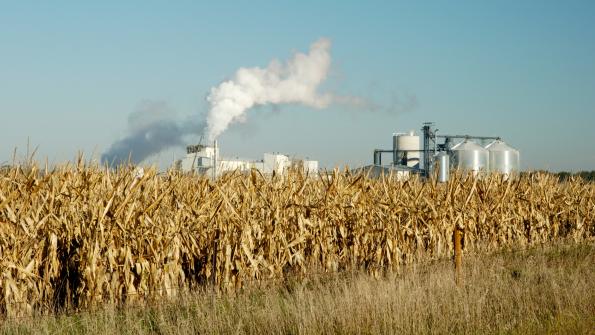November 22, 2016

The politically contentious Renewable Fuel Standard will survive a Donald Trump administration because ethanol is too well-established in rural areas to be dismantled, Agriculture Secretary Tom Vilsack said.
"There’s going to be a lot of saber-rattling, but it supports too many jobs and too much rural infrastructure is set up for it," Vilsack said in a Nov. 18 interview that also covered subjects such as trade and immigration. "The Renewable Fuel Standard is solid."
The U.S. Environmental Protection Agency is due to decide whether to raise its targets for national biofuels consumption from 14.5 billion gallons in 2016, bringing it more in line with the 15 billion-gallon mandate envisioned in energy legislation passed in 2007. Ethanol has been criticized for raising food and feed costs, but has been a boon for corn-growers and domestic jobs.
President-elect Trump told the Iowa Renewable Fuels Association earlier in 2016 that the U.S. should increase ethanol mandates, but in September his campaign published a fact sheet calling for removal of the biofuel blending credit system. His campaign later reissued the fact sheet without the language opposing the system. Vilsack, speaking in his U.S. Department of Agriculture office in Washington, said rural support for the rest of the RFS would be enough to withstand attacks on it from other quarters. "I think it will be very difficult for it to be repealed," he said.
U.S. ethanol production has more than doubled since 2007, when the current form of the law was enacted, U.S. Energy Department data show.
Related
Trump seen as wildcard for ethanol makers
Vilsack, the only member of President Barack Obama’s original cabinet still in his post, said U.S. agriculture is in good shape heading into 2017, despite lingering crop surpluses that have pushed down prices.
"Producers will make different decisions, and over time the surplus will be whittled down, and there will be a weather disaster someplace," said the former governor of Iowa. "I think the arrow is still pointing up."
But his successor may need to buck Trump on trade and immigration. Those issues, on which the Republican candidate campaigned for more restrictive policies, are too important for agricultural prosperity to ignore, Vilsack said. He added that less regulation and lower taxes, two areas farmer groups have welcomed as they look forward to a Trump administration, are less important.
The U.S. "can’t declare war on China and Mexico, our number one and number three partners, and not be for immigration, which provides us with our workforce," he said. "You can do away with the EPA tomorrow. You can do away with what you call the ‘death tax’ tomorrow. But if you don’t a have a market, and you don’t have a workforce, what difference will it make?"
Vilsack, 65, said he doesn’t know what his plans will be after he leaves office.
--With assistance from Megan Durisin, Jeff Wilson, Jennifer A. Dlouhy and Mario Parker.
To contact the reporter on this story: Alan Bjerga in Washington at [email protected]
To contact the editors responsible for this story: Simon Casey at [email protected]
© 2016 Bloomberg L.P
You May Also Like




